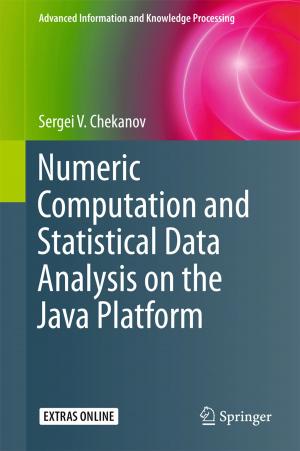Data Deduplication for Data Optimization for Storage and Network Systems
Nonfiction, Computers, Database Management, Information Storage & Retrievel, Science & Nature, Technology, Telecommunications| Author: | Daehee Kim, Sejun Song, Baek-Young Choi | ISBN: | 9783319422800 |
| Publisher: | Springer International Publishing | Publication: | September 8, 2016 |
| Imprint: | Springer | Language: | English |
| Author: | Daehee Kim, Sejun Song, Baek-Young Choi |
| ISBN: | 9783319422800 |
| Publisher: | Springer International Publishing |
| Publication: | September 8, 2016 |
| Imprint: | Springer |
| Language: | English |
This book introduces fundamentals and trade-offs of data de-duplication techniques. It describes novel emerging de-duplication techniques that remove duplicate data both in storage and network in an efficient and effective manner. It explains places where duplicate data are originated, and provides solutions that remove the duplicate data. It classifies existing de-duplication techniques depending on size of unit data to be compared, the place of de-duplication, and the time of de-duplication. Chapter 3 considers redundancies in email servers and a de-duplication technique to increase reduction performance with low overhead by switching chunk-based de-duplication and file-based de-duplication. Chapter 4 develops a de-duplication technique applied for cloud-storage service where unit data to be compared are not physical-format but logical structured-format, reducing processing time efficiently. Chapter 5 displays a network de-duplication where redundant data packets sent by clients are encoded (shrunk to small-sized payload) and decoded (restored to original size payload) in routers or switches on the way to remote servers through network. Chapter 6 introduces a mobile de-duplication technique with image (JPEG) or video (MPEG) considering performance and overhead of encryption algorithm for security on mobile device.
This book introduces fundamentals and trade-offs of data de-duplication techniques. It describes novel emerging de-duplication techniques that remove duplicate data both in storage and network in an efficient and effective manner. It explains places where duplicate data are originated, and provides solutions that remove the duplicate data. It classifies existing de-duplication techniques depending on size of unit data to be compared, the place of de-duplication, and the time of de-duplication. Chapter 3 considers redundancies in email servers and a de-duplication technique to increase reduction performance with low overhead by switching chunk-based de-duplication and file-based de-duplication. Chapter 4 develops a de-duplication technique applied for cloud-storage service where unit data to be compared are not physical-format but logical structured-format, reducing processing time efficiently. Chapter 5 displays a network de-duplication where redundant data packets sent by clients are encoded (shrunk to small-sized payload) and decoded (restored to original size payload) in routers or switches on the way to remote servers through network. Chapter 6 introduces a mobile de-duplication technique with image (JPEG) or video (MPEG) considering performance and overhead of encryption algorithm for security on mobile device.















